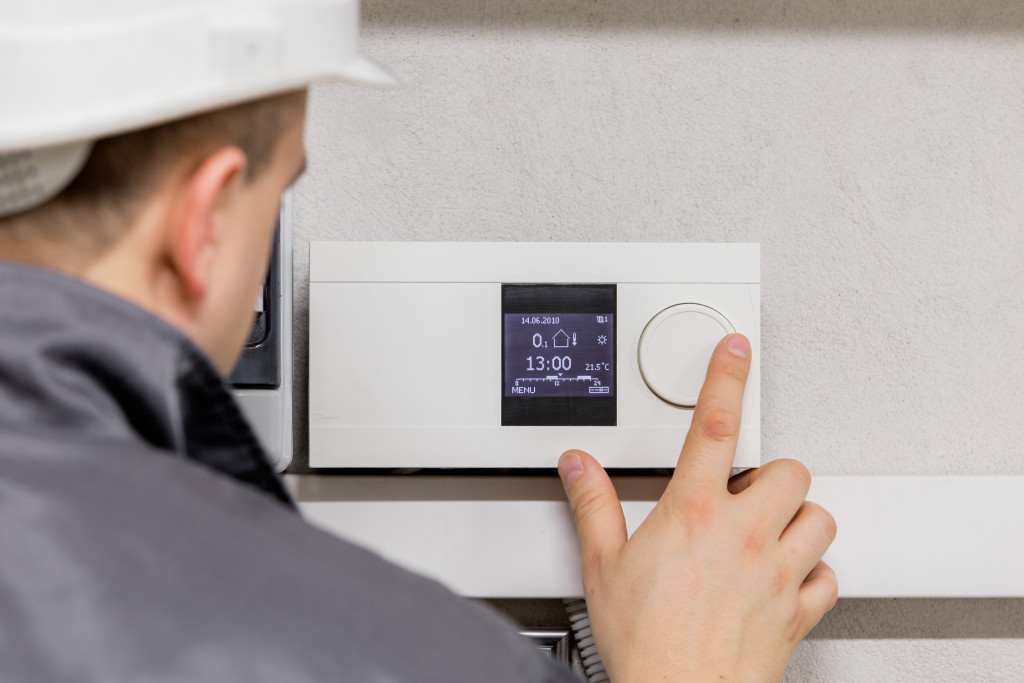- Smart building technology offers increased efficiency, reduced costs, improved safety and security, and sustainability.
- Cell signal reliability should be tested to ensure tenants have a good connectivity experience.
- Indoor air quality needs to be monitored for the safety of occupants.
- Virtual reality provides immersive virtual tours and virtual meeting capabilities.
- The Internet of Things provides valuable data and insights.
The world of technology is constantly evolving, and commercial building owners must stay aware of the latest trends to ensure they provide the best environment for their tenants. From smart building systems to virtual reality, there are a variety of technologies that are changing the way commercial buildings operate. This blog post will discuss the top tech trends every commercial building owner should know.
Smart Building Technology
The usage of smart building technology is becoming more popular, as it offers numerous advantages compared to traditional buildings. Smart building technology coordinates a multitude of components like heating, lighting, air conditioning, and security systems, among many others. It can be controlled through a single interface, offering better efficiency, energy savings, and cost reduction. Here are the benefits:
Efficiency
Smart building technology significantly increases efficiency compared to traditional building methods. Automation in smart buildings leads to significant reductions in energy wastage, improved lighting, and temperature regulation. For example, heating, ventilating, and air conditioning (HVAC) systems are programmed to adjust according to external and internal temperature changes, but only when necessary, saving energy and money.
Reduced Costs
Since many systems are automated, there is a possibility of reduced labor expenses in smart buildings. Smart buildings’ operational costs may still be high, but the savings on energy can help offset these costs in the long run. Moreover, the automation process can lessen the number of equipment failures, mitigate reactive maintenance expenditure, and increase the lifespan of equipment, reducing replacement costs.
Safety and Security
Security is a vital aspect of the construction industry, and smart building technology can provide an extra layer of protection to traditional security systems. Smart buildings integrate security cameras and motion sensors and can detect unauthorized access to the building, all of which can be monitored and controlled remotely, ensuring maximum safety.
Sustainability
Intelligent building technology promotes sustainable practices. Buildings are one of the significant energy consumers globally and contribute to greenhouse gas emissions globally. Smart buildings’ energy conservation features can help contribute to a more sustainable environment by reducing energy consumption and carbon emissions.
Cell Signal Reliability

When it comes to commercial buildings, ensuring that your property has reliable cell signal strength is crucial. With people relying on their phones for almost everything, a weak signal can lead to frustration and a lack of productivity. Conducting a cell phone signal strength test is the first step in identifying potential issues with your building’s signal reliability. By addressing problems and implementing solutions, you can provide your tenants and customers with the convenience and ease they expect in today’s connected world.
Indoor Air Quality
COVID-19 has highlighted the importance of indoor air quality in commercial buildings. Building owners can implement air purifiers, sensors, and ventilation systems to improve air quality. Ultraviolet-C light has also been shown to be effective in killing viruses and bacteria.
Virtual Reality
Virtual reality technology is changing the game for commercial real estate. Building owners can use virtual reality to create immersive virtual tours of their space, allowing potential tenants to experience the area without physically visiting. This technology also allows for virtual meetings and collaboration, making it easier for tenants to work together wherever they are located.
Internet of Things (IoT)
The Internet of Things allows devices and systems to communicate with each other, providing building owners with valuable data and insights. IoT technology can be used to monitor energy usage, occupancy levels, and even parking availability. This data can then be used to make informed decisions about space usage, improve tenant experiences, and reduce operating costs.
Enhanced Security

With cyber threats on the rise, building owners need to ensure they have the proper security measures in place. Enhanced security technology such as facial recognition, biometric authentication, and advanced access control can help keep buildings secure while providing a convenient experience for tenants.
To Sum Up
As technology continues to advance, the commercial real estate industry must adapt to stay relevant. From smart building technology to enhanced security measures, the latest tech trends are providing valuable benefits for building owners and tenants alike. By visiting informed about these trends and investing in the right technology, commercial building owners can create a safer, more efficient, and more enjoyable space for their tenants.
